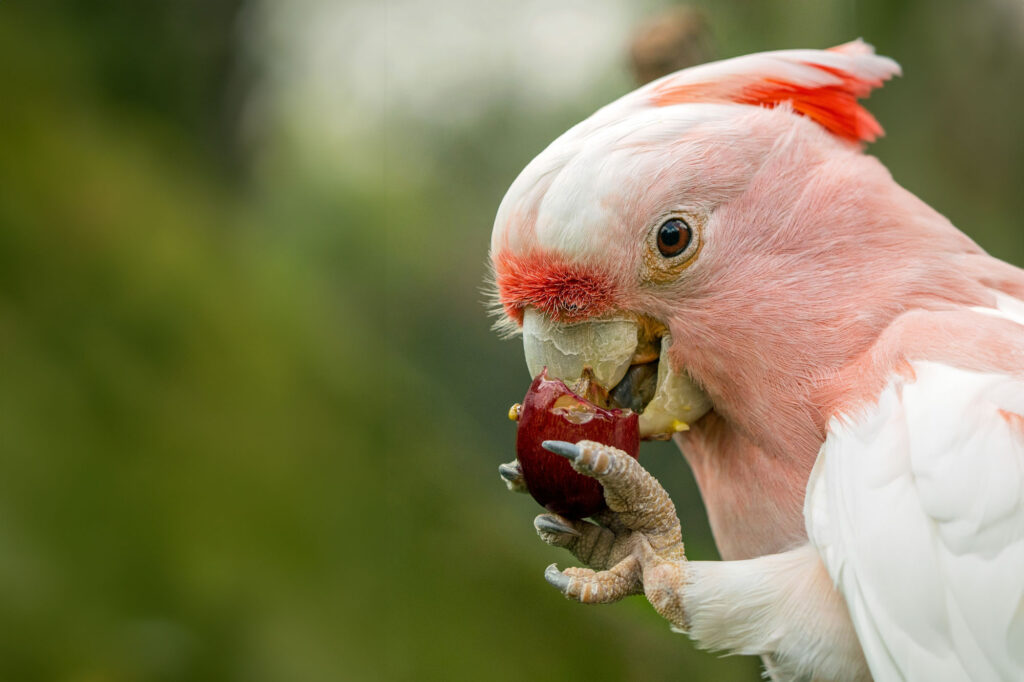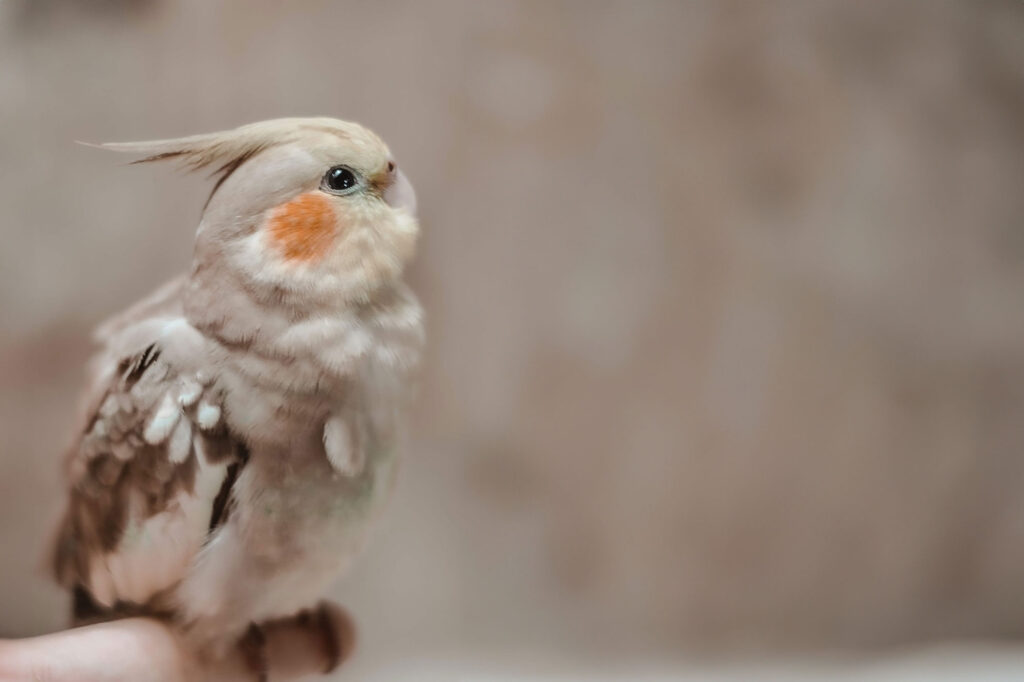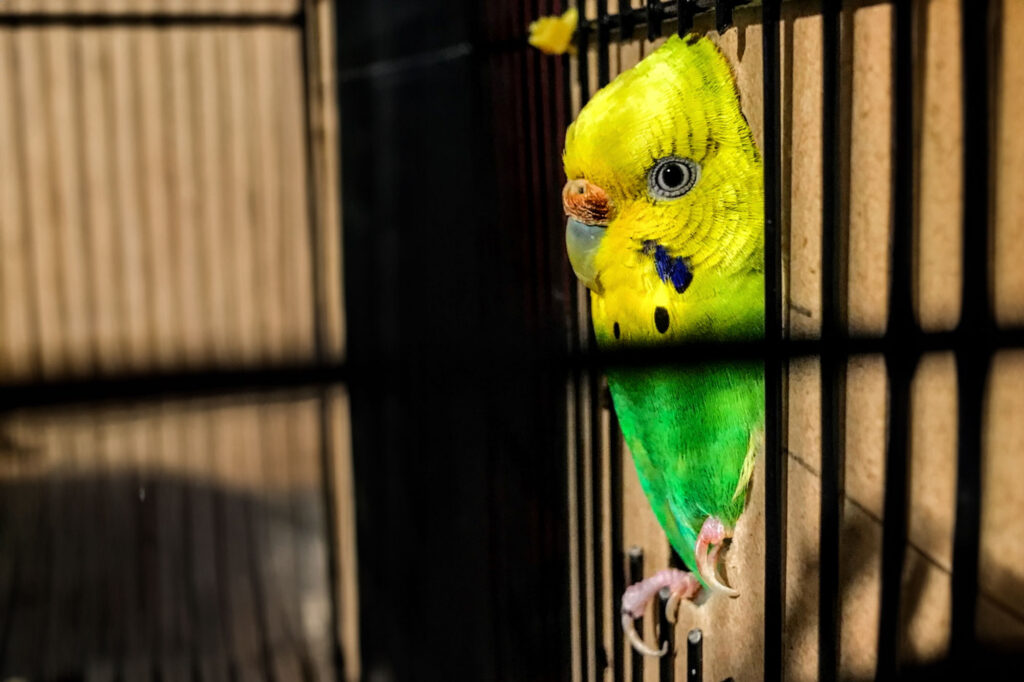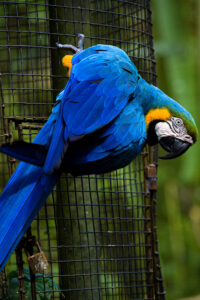

Birds are such wonderfully interactive companions that it seems like the most natural thing in the world for us to share our food with them, sometimes even without thinking. Food treats are also a great way to train and bond with birds. But, as for dogs, cats and other animals, many human treats are unsuitable for our feathered friends.
Birds are highly sensitive and do not process food in the same way as humans do (or even as other pets do). We hope these handy guidelines will help you choose safe tidbits to share with the bird in your life.


Healthy Diet
Pet birds have specific nutritional and caloric needs, which vary according to species, size and from individual to individual. Feeding an inappropriate diet can have serious health implications. For example, bird parents should avoid feeding seed-based diets, which commonly result in malnutrition and obesity – birds tend to choose only their favourite seeds and avoid the nutritious components (much like kids choosing lollies over broccoli…). Feeding an exclusively human-food diet can cause similar imbalances. Ideally, 80% of a pet bird’s diet should be composed of a veterinary-endorsed pellet product formulated to meet all dietary vitamin and mineral requirements. We would be happy to assist with recommendations.


Toxic Foods
The following food products are toxic to all bird species and should be avoided altogether:
- Avocado – all parts of the avo plant are highly toxic (and potentially fatal) to birds. The specific toxin is persin and causes heart problems and respiratory distress.
- Chocolate – our favourite tasty treat contains theobromine and caffeine (methylxanthines), which cause changes in heart rate and rhythm, hyperactivity, and seizures and can also be fatal for birds (and other pets). The darker the chocolate, the more toxic.
- Garlic and onions – much has been written about the dangers of these members of the allium family for pets like dogs and cats. Still, they are unfortunately just as toxic to birds, affecting their blood cells, kidneys and liver.
- Fruit pips and seeds – many birds love eating fruits like apples, cherries, apricots, plums and peaches, but bird parents should remove pips and seeds as these contain cyanide.
- Nightshade plants – potatoes, tomatoes, eggplant and peppers may be safe for birds, but special care should be taken that they never ingest any other parts of these plants.
- Xylitol – while there isn’t much data on its effects on birds, this popular artificial sweetener causes severe low blood pressure and liver disease in dogs and is generally assumed unsafe for birds and other pets as well.
- Peanuts and grains – feeding these is inadvisable as they may contain mold, which birds are highly susceptible to.
Accidental Ingestion
If you’re concerned that your beloved feathered friend may have eaten something toxic, contact us or your closest after-hours emergency vet immediately. Birds can’t vomit, so never try to induce vomiting, as this will cause trauma and possibly worsen the toxicity. You will need to provide as much information as possible on what the bird may have ingested, and the vets will also find details of his usual diet and lifestyle helpful. Treatment typically involves supportive care, including providing fluids, heat, oxygen and appropriate nutrition. In some species, a feeding tube may be passed to introduce activated charcoal to absorb toxins.


Other Toxins
While foods represent a large portion of the potential dangers to pet birds, other environmental toxins can be equally serious. Many exist in our homes without us even realising it.
These are the top 5 toxins in birds as noted by the Pet Poison Helpline:
- Lead
- Zinc
- Avocado
- Teflon toxicity
- Other inhaled toxins
- Zinc toxicity is currently the number one metal poisoning found in caged birds.
Look out for a future blog where we’ll unpack other potential hazards for pet birds, including poisonous plants, metals and inhalants.
They may have tough little “personalities”, but our bird buddies also have sensitive constitutions, and it’s always better to err on the side of caution when offering treats they’re not used to. Feel free to contact us for advice and safety guidelines if you’re keen to switch things up in your pet bird’s diet, and remember to make any changes very gradually.
